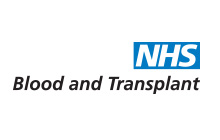About the Blood Transfusion programme
The Blood Transfusion Training (BTT) elearning programme has been developed by NHS Blood and Transplant (NHSBT) as a free of charge alternative to learnbloodtransfusion (LBT).
Safe and appropriate transfusion saves and improves lives, but it is not without risk.
These modules are designed to support the training of staff directly involved in the transfusion process and/or the management of patients requiring anti-D immunoglobulin prophylaxis. They provide best practice guidance on optimising the care of patients who may need a transfusion.
Each module includes an assessment, a score of 80% is required to successfully complete the module.
The programme includes the following modules:
- Essential Transfusion Practice
- Blood Components
- Consent
- Transfusion Reactions
- An introduction to Transfusion Laboratory practice
- Good Manufacturing Practice
- Use of Anti-D Immunoglobulin in Pregnancy
- Cell Salvage
- SHOT; Serious Hazards of Transfusion
Our sampling and bedside check animations are also available at: https://hospital.blood.co.uk/patient-services/patient-blood-management/education/
More information
The modules appropriate for you will depend on local training requirements, your area of practice, and role. Further guidance on this please discuss with your hospital transfusion team or transfusion practitioner.
Project structure
Blood Transfusion Training offers 9 courses. You can find out more by selecting a course/pathway below.
-
Essential Transfusion Practice:
Essential Transfusion Practice:
This course has been written for healthcare staff directly involved in the transfusion process (in adults, neonates, infants and children), but is relevant to all staff working with patients who may require a blood transfusion. This module outlines the key steps involved, through the journey from the shared decision to transfuse, sampling, collection, administration, and identifying reactions and post transfusion requirements. Basic compatibility rules and the crucial differences across components that you need to know are included.
-
Blood Components:
Blood Components:
This module is for professionals making the clinical decision to transfuse and writing the authorisation for the components. It may also be of interest to any healthcare workers involved in the care of patients receiving a transfusion. In this module, well discuss the routinely available components, their principles of compatibility, clinical application and indications for use. It is recommended that this module is completed after the Essential Transfusion Practice module.
-
Consent:
Consent:
This course is for those making the decision to transfuse and when authorising transfusion but is relevant to any healthcare professional caring for patients receiving a transfusion. It’ll illustrate the importance of consent and your role in supporting shared decision making with your patient, ensuring that any consent, or refusal, is informed and valid. It will give an overview of general consent principles and specifics relating to transfusion.
-
Transfusion Reactions:
Transfusion Reactions:
This module is for those involved in the care or management of patients at risk of, or experiencing, a transfusion reaction. It may also be of interest to any healthcare workers involved in the care of patients receiving a transfusion. In this module, we’ll illustrate the importance of patient observation, recognising signs and symptoms, and appropriate management of reactions. We also look at different types of reactions, why they occur, and when to report.
-
An introduction to Transfusion Laboratory practice:
An introduction to Transfusion Laboratory practice:
This module is a guide for newly qualified Biomedical Scientists (BMS), trainee Biomedical Scientists and multi-disciplinary BMS staff new to the Blood Transfusion discipline. Its primary focus is around patient safety providing staff with a basic knowledge of Blood Transfusion Laboratory practice
-
Good Manufacturing Practice:
Good Manufacturing Practice:
This course is aimed at laboratory staff and various roles involved in the transfusion pathway, up until the release of components from the laboratory. It is intended to help you gain an understanding of GMP in relation to blood transfusion. This includes the legal requirements of hospital transfusion laboratories to establish and maintain a quality system based on Good Manufacturing Practice.
-
Use of Anti-D Immunoglobulin in Pregnancy:
Use of Anti-D Immunoglobulin in Pregnancy:
This module is aimed at midwives, obstetricians, nurses working in maternity care, and biomedical scientists working in transfusion laboratories. It is also relevant for health care professionals working in any area where anti-D immunoglobulin may be administered. The module illustrates why and when anti-D immunoglobulin is needed during pregnancy, and after delivery, including dosing and administration. It outlines the laboratory screening/monitoring required for D negative women, the process for determining fetal D type, and post-delivery testing for neonates. It will also cover the care required if a pregnant woman has an immune anti-D antibody, alongside other special considerations.
-
Cell Salvage:
Cell Salvage:
This module will help you to understand cell salvage and learn about blood conservation techniques. It will illustrate the principles of cell salvage, when to use it and the process for collection, processing and re-infusion of (including consent, prescribing and observation). This module will also cover the importance of blood conservation, documentation and governance.
-
SHOT; Serious Hazards of Transfusion:
SHOT; Serious Hazards of Transfusion:
This module has been developed for healthcare staff directly involved in the transfusion process (in adults, neonates, infants and children), but is relevant to all staff working with patients who may require a blood transfusion. The module consists of the following e-learning modules:
- Insights for Safer Transfusion
- Module 1 – Overview of Haemovigilance
- Module 2 – Reporting to SHOT
- Module 3- Learning from Haemovigilance
- Human Factors and Ergonomics
- Specific requirements for patients – The essentials
- Insights for Safer Transfusion
Project executive board

Anne Davidson
Project Lead, NHS Blood and Transplant
Andrea Marshall
Project Lead, NHS Blood and Transplant
Eric Peotto
Digital Learning Consultant, NHS Blood and Transplant
Project Team

NHS Blood and Transplant, Patient Blood Management team, supported by external stakeholders and subject matter experts.




